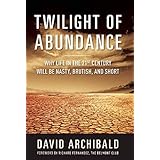Derideo_Te
Je Suis Charlie
- Mar 2, 2013
- 20,461
- 7,961
- 360
The article in question refers to the uptake of carbon dioxide and its impact on plant growth. Here there seems to be little doubt that carbon dioxide enhances growth in both agriculture and forestry. One example of the tracking of accelerated forest growth published in 2010:
"Using a unique dataset of tree biomass collected over the past 22 years from 55 temperate forest plots with known land-use histories and stand ages ranging from 5 to 250 years, we found that recent biomass accumulation greatly exceeded the expected growth caused by natural recovery. We have also collected over 100 years of local weather measurements and 17 years of on-site atmospheric CO2 measurements that show consistent increases in line with globally observed climate-change patterns."
Evidence for a recent increase in forest growth
This one was published in 2014:
"Our results provide, to our knowledge, the first ground-based evidence that global environmental changes can increase C sequestration in forests on a broad geographic scale and imply that both the traits and age of trees regulate the responses of forest growth to environmental changes."
Evidence for environmentally enhanced forest growth
It is reasonable to assume that the increased uptake of CO2 by plants and trees will have an impact on atmospheric levels of CO2. Quantifying that impact is what researchers have yet to determine.
Rather than assailing the reputation of the author, it may be wise to examine the arguments offered.
.
Mankind wasn't around the last time CO2 levels were this high and ocean levels for 100' higher than today. If you want to regress to another age of the dinosaurs that is certainly your choice. However if mankind is going to adapt to that kind of a world he will have to learn to feed himself on a great deal less surface area than he currently enjoys.
The Last Time CO2 Was This High Humans Didn t Exist Climate Central
I never offered an opinion as to the source of CO2, so your reply does not address my post. The research indicates that there is a dynamic at work which points to increased levels of CO2 being absorbed by plants, resulting in greater levels of growth.
It is clear that this dynamic exists. What is still to be determined is what effect this will have on atmospheric CO2.
.
Deforestation is the 2nd largest contributor to anthropogenic CO2.
Deforestation Facts Causes Effects
Deforestation and climate change
Deforestation is considered to be one of the contributing factors to global climate change. According to Michael Daley, associate professor of environmental science at Lasell College in Newton, Massachusetts, the No. 1 problem caused by deforestation is the impact on the global carbon cycle. Gas molecules that absorb thermal infrared radiation are called greenhouse gases. If greenhouse gases are in large enough quantity, they can force climate change, according to Daley. While oxygen (O2) is the second most abundant gas in our atmosphere, it does not absorb thermal infrared radiation, as greenhouse gases do. Carbon dioxide (CO2) is the most prevalent greenhouse gas. In 2012, CO2accounted for about 82 percent of all U.S. greenhouse gas, according to the Environmental Protection Agency (EPA). Trees can help, though. 300 billion tons of carbon, 40 times the annual greenhouse gas emissions from fossil fuels, is stored in trees, according to Greenpeace.
The deforestation of trees not only lessens the amount of carbon stored, it also releases carbon dioxide into the air. This is because when trees die, they release the stored carbon. According to the 2010 Global Forest Resources Assessment, deforestation releases nearly a billion tons of carbon into the atmosphere per year, though the numbers are not as high as the ones recorded in the previous decade. Deforestation is the second largest anthropogenic (human-caused) source of carbon dioxide to the atmosphere, ranging between 6 percent and 17 percent. (Van Der Werf, G. R. et al., 2009)
Deforestation is considered to be one of the contributing factors to global climate change. According to Michael Daley, associate professor of environmental science at Lasell College in Newton, Massachusetts, the No. 1 problem caused by deforestation is the impact on the global carbon cycle. Gas molecules that absorb thermal infrared radiation are called greenhouse gases. If greenhouse gases are in large enough quantity, they can force climate change, according to Daley. While oxygen (O2) is the second most abundant gas in our atmosphere, it does not absorb thermal infrared radiation, as greenhouse gases do. Carbon dioxide (CO2) is the most prevalent greenhouse gas. In 2012, CO2accounted for about 82 percent of all U.S. greenhouse gas, according to the Environmental Protection Agency (EPA). Trees can help, though. 300 billion tons of carbon, 40 times the annual greenhouse gas emissions from fossil fuels, is stored in trees, according to Greenpeace.
The deforestation of trees not only lessens the amount of carbon stored, it also releases carbon dioxide into the air. This is because when trees die, they release the stored carbon. According to the 2010 Global Forest Resources Assessment, deforestation releases nearly a billion tons of carbon into the atmosphere per year, though the numbers are not as high as the ones recorded in the previous decade. Deforestation is the second largest anthropogenic (human-caused) source of carbon dioxide to the atmosphere, ranging between 6 percent and 17 percent. (Van Der Werf, G. R. et al., 2009)


